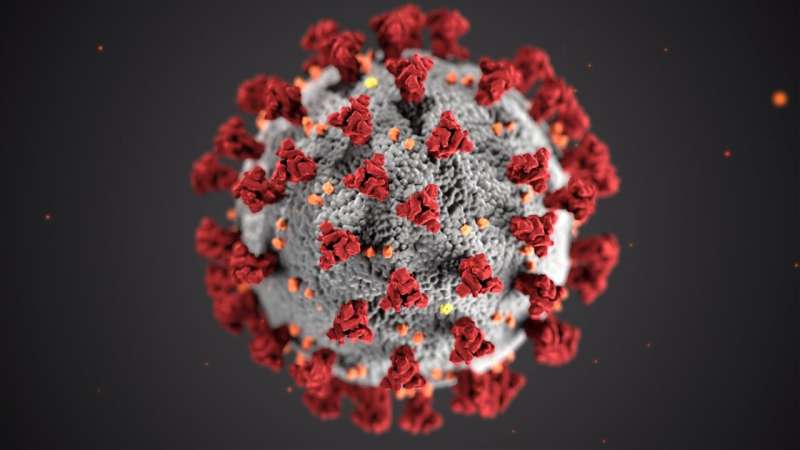This article has been reviewed according to Science X's editorial process and policies. Editors have highlighted the following attributes while ensuring the content's credibility:
fact-checked
proofread
SARS-CoV-2 spike protein sensitizes nociceptors and evokes nociceptive behaviors

A study that investigated whether the spike protein of Severe Acute Respiratory Syndrome Coronavirus 2 (SARS-CoV-2) can sensitize nociceptors and promote pain-like behaviors in mice was presented at the 102nd General Session of the IADR, which was held in conjunction with the 53rd Annual Meeting of the American Association for Dental, Oral, and Craniofacial Research and the 48th Annual Meeting of the Canadian Association for Dental Research, on March 13-16, 2024, in New Orleans, LA, U.S..
The abstract, "SARS-Cov-2 Spike Protein Sensitizes Nociceptors and Evokes Nociceptive Behaviors" was presented during the "AADOCR Hatton: Junior" Poster Session that took place on Friday, March 15, 2024 at 3:45 p.m. Central Standard Time (UTC-6).
The study, by Meilinn Tram of the University of Texas Health Science Center San Antonio, U.S., employed calcium imaging (Fura 2AM) using cultured mouse (C57/B) trigeminal ganglion (TG) and dorsal root ganglion (DRG) sensory neurons with recombinant SARS-CoV-2 spike protein (S1 subunit) to assess sensitization of capsaicin-sensitive nociceptors. Additional studies evaluated nociceptive responses to thermal and mechanical stimuli. Data was collected by blinded observers and analyzed by ANOVA.
The results of the study demonstrated that recombinant SARS-CoV-2 spike protein significantly sensitizes capsaicin-sensitive nociceptors in both TG and DRG neurons. Moreover, administration of spike protein completely resensitized TRPV1 previously desensitized by capsaicin. This effect was independent of the viral entry protein Ace2 as the same results were observed in wild-type and Ace2-KO mice. No sexual dimorphism was noted. The peripheral injection of S1 spike protein triggered both thermal and mechanical allodynia and nearly tripled nocifensive responses to capsaicin injection.
These findings provide new insights into the mechanisms underlying pain symptoms in COVID-19 patients and suggest that sensitization of the capsaicin-sensitive subclass of afferent neurons may participate in this prolonged clinical pain state.




















